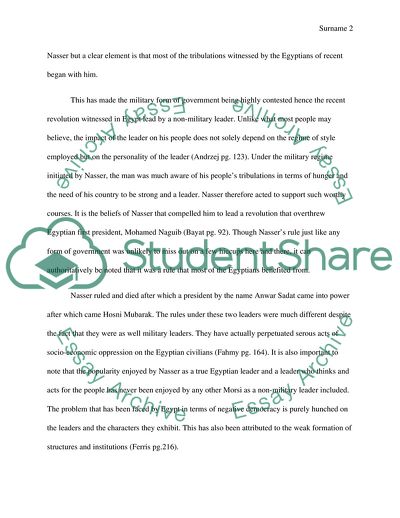Cite this document
(Will Egypt Become a Genuine Democracy Essay Example | Topics and Well Written Essays - 1750 words, n.d.)
Will Egypt Become a Genuine Democracy Essay Example | Topics and Well Written Essays - 1750 words. https://studentshare.org/politics/1820333-will-egypt-become-a-genuine-democracy
Will Egypt Become a Genuine Democracy Essay Example | Topics and Well Written Essays - 1750 words. https://studentshare.org/politics/1820333-will-egypt-become-a-genuine-democracy
(Will Egypt Become a Genuine Democracy Essay Example | Topics and Well Written Essays - 1750 Words)
Will Egypt Become a Genuine Democracy Essay Example | Topics and Well Written Essays - 1750 Words. https://studentshare.org/politics/1820333-will-egypt-become-a-genuine-democracy.
Will Egypt Become a Genuine Democracy Essay Example | Topics and Well Written Essays - 1750 Words. https://studentshare.org/politics/1820333-will-egypt-become-a-genuine-democracy.
“Will Egypt Become a Genuine Democracy Essay Example | Topics and Well Written Essays - 1750 Words”. https://studentshare.org/politics/1820333-will-egypt-become-a-genuine-democracy.


